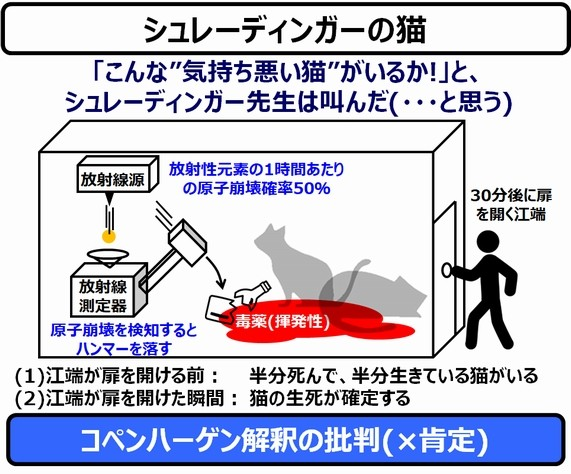多くの人が意外に思われるかもしれませんが、私は、井上堅二さん(原作)と吉岡公威さん(作画)の「ぐらんぶる」という漫画/アニメが大好きです。
Many people might find it surprising, but I love the manga/anime Grand Blue, written by Kenji Inoue and illustrated by Kimitake Yoshioka.
色々な要因がありますが、基本的に「悪意のある人間が登場しない」という作品であることが挙げられます。
There are many reasons, but fundamentally, it's a story where no truly malicious characters appear.
・・・もちろん、厳密な意味では、悪意や嫉妬が満載なのですが、なんというか、そこに遺恨のないギャグに落し込んでいる、という点が本当に素晴しい。
…Of course, strictly speaking, there’s plenty of malice and jealousy, but the brilliance lies in how it’s all harmlessly converted into absurd comedy.
そりゃね、悪いと良いを対立構造にする作品は作りやすいし、売れやすいと思うのですが、私は全員が幸せに見える作品が好きなんですよ。
Sure, stories that pit good against evil are easier to write and tend to sell well, but I prefer works where everyone seems happy.
私は、(今は)酒は飲みませんし、大学のころは学費稼ぎのバイトの日々であり、陽キャのサークルなんぞ『こちらからお断り』というくらい嫌いだったです。
I don’t drink alcohol (anymore), and back in college, I was buried in part-time jobs to pay tuition—and I loathed those extroverted social clubs.
という訳で、この漫画の内容に「憧れる」という気持ちは、1mmも足りとも湧いては決ませんし、そもそも、私、大学生のころから、一人で世界中を放浪していた「ぼっち」でしたから。
So no, I don’t feel the slightest bit of admiration for the lifestyle depicted in the story—back then, I was more of a lone traveler wandering the world solo.
-----
それでも「ぐらんぶる」が好きなのは、あの狂ったようなテンションの中に、妙に整合性の取れた「幸福感」があるからです。
Still, I love Grand Blue because beneath all that chaotic energy lies a strangely consistent sense of happiness.
全裸でダイブしようが、酔って警察に怒鳴られようが、どんなに無茶なことをしていても、「ああ、こういうふうに“今が楽しい”と思えるのって、いいな」と思わせてくれる。
Whether they’re diving naked or getting yelled at by the police, no matter how reckless it gets, it always makes me think, “Wow, being able to say this moment is fun—that’s kind of wonderful.”
登場人物たちが常に「他人と比べて自分はどうか」ではなく、「自分たちが今どう感じているか」に軸を置いて生きていて、その主観的幸福感(Subjective Well-Being)が、全編にわたって溢れている。私はそれがとても好きです。
The characters never define themselves by comparing themselves to others—they focus on how they feel in the present moment. That sense of subjective well-being floods the entire series, and I genuinely love that about it.
それに、あの作品、ちゃんと理系のキャンパスライフの描写もあるんですよね。
Additionally, the story features authentic depictions of life at a science and engineering university.
教室での実験やレポート、材料の名前や現象の説明など、要所に理工学部らしい空気が漂っていて、それが不思議と入りやすさを生んでいる。
Scenes of lab work, writing reports, naming compounds, and explaining physical phenomena—all that science-student atmosphere makes it unexpectedly relatable.
ああ、これ、ちゃんと「大学の日常」だなと納得できるのです。
It makes me think, “Ah, yes, this does capture everyday campus life.”
ギャグも、勢いと絵面のインパクトに全振りしているようでいて、実は構成が緻密で、セリフのテンポや間の取り方が絶妙。
And the humor—while it seems to rely heavily on sheer momentum and visuals—is tightly constructed, with impeccable pacing and dialogue timing.
つまり、バカをやるにも高度な知性が要る、という証明のような作品でもあります。
In other words, it proves that even stupidity requires a high degree of intelligence to execute well.
それに、何より、登場人物たちが「真面目な努力」を絶対に否定しないところがいい。
More importantly, the characters never dismiss honest effort.
ダイビングの技術や試験勉強、恋愛への不器用さ――どれも「笑いながらも、ちゃんとやる」。
Whether it's mastering diving skills, studying for exams, or awkward attempts at romance, they laugh through it, but they take it seriously.
だからこそ、ただのドタバタでは終わらず、見終わった後に妙な爽快感が残る。
That’s why it doesn’t end as just chaotic comedy—it leaves a strange sense of refreshment afterward.
------
まあ、何というか、要するに、自分の好みの作品と、自分の憧れる生き方が、必ずしも一致するわけではない、という一つの傍証にはなるのではないか、と思います。
So, I guess what I’m trying to say is: the kind of stories I love don’t necessarily match the life I aspire to. Grand Blue is one piece of evidence for that.
そして、自分には到底できない生き方だからこそ、ああいう全力バカたちの青春を、私は安心して笑いながら眺めていられるのでしょう。
Perhaps it’s precisely because I could never live like that that I can enjoy watching those ridiculous youths burn through their lives at full throttle—with a big, safe smile.
あるいは、あれだけ「自由に騒いでも許される空間」への密かな渇望が、私のどこかに残っているのかもしれません。
Or maybe, deep down, I still yearn for a space where that kind of wild freedom is allowed.
それでもやっぱり、あの連中と一緒に飲みに行くのは……全力でお断りしますけどね。
But even so, I’d refuse to go drinking with those maniacs.
------
『江端は何を突然書き出しているのだ?』と驚かれた方も多いかもしれませんが、
Some of you might be thinking, “Why is Ebata suddenly writing about this?”
学会発表&聴講で、ホテルにかんずめの状態では、
Well, being cooped up in a hotel for academic presentations and sessions...
7つのディスプレイと4台のPCが稼動している自宅の環境とは異なり、
...is a far cry from my home environment, where I usually have seven displays and four computers running.
iPadでアマプラを見るくらいしかできないんですよ。
In that situation, all I can do is watch Amazon Prime on my iPad.
で、まあ、久々に「ぐらんぶる」と出会った、というわけです。
And so, that’s how I ended up rediscovering Grand Blue after quite some time.
